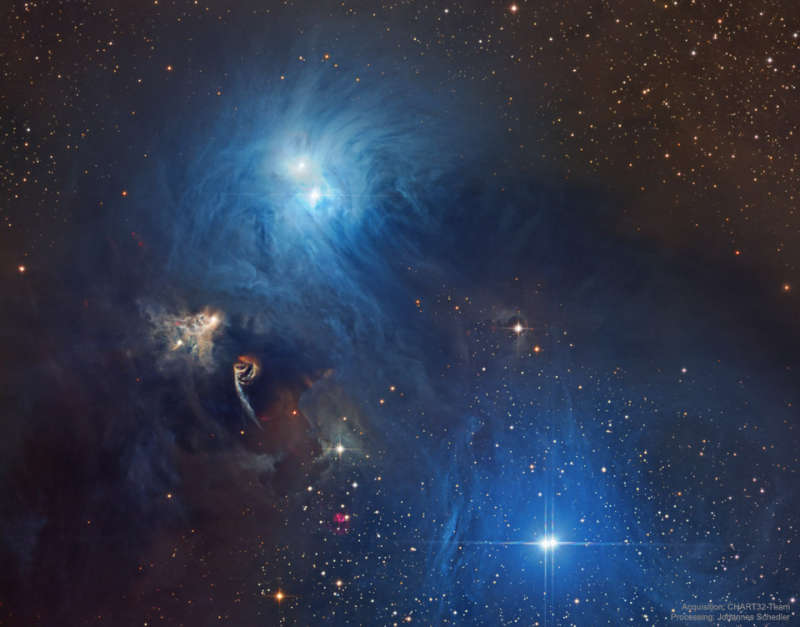
|
Credit & Copyright: CHART32 Team,
Processing -
Johannes Schedler
Explanation:
Cosmic dust clouds and young, energetic stars inhabit
this
telescopic vista,
less than 500 light-years away toward the northern boundary of
Corona Australis, the Southern Crown.
The dust clouds effectively block light from
more distant background stars in the
Milky Way.
But the striking complex of reflection nebulae cataloged as
NGC 6726, 6727, and IC 4812
produce a characteristic blue color as light
from the region's young hot stars is
reflected by the cosmic dust.
The dust
also obscures from view stars
still in the process
of formation.
At the left, smaller yellowish nebula NGC 6729 bends around
young variable star
R
Coronae Australis.
Just below it, glowing arcs and loops shocked by outflows from
embedded newborn stars are
identified as Herbig-Haro objects.
On the sky this field of view spans about 1 degree.
That corresponds to almost 9
light-years at the estimated
distance of the nearby star forming region.
Video:
Best of APOD 2019 for the Night Sky Network
|
January February March April May June July August September October November December |
| ||||||||||||||||||||||||||||||||||||||||||||||||
NASA Web Site Statements, Warnings, and Disclaimers
NASA Official: Jay Norris. Specific rights apply.
A service of: LHEA at NASA / GSFC
& Michigan Tech. U.
Based on Astronomy Picture
Of the Day
Publications with keywords: star formation - dust
Publications with words: star formation - dust
See also:
